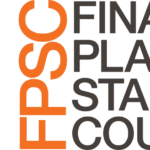 Special to the Financial Independence Hub
Special to the Financial Independence Hub
Teaching your kids sound financial habits when they’re young can help them learn to make wise choices about their money, and ease their reliance on you later.
Alison Tedford blogs about parenting at Sparkly Shoes and Sweat Drops, and at home is a dedicated mom who teaches her eight-year-old son Liam about finances, among other life lessons. We spoke with Alison as well as Jeannette Brox, CFP®, a senior financial consultant with Investors Group in Toronto, who’s affectionately called “The Money Lady” by her clients’ children.
The value of effort versus reward
To help instil a sense of the value of money in Liam, Alison enlists Liam’s help as she works on her blog and manages her social media channels, and ensures that he understands the financial value of each activity. “When he wants something, we tell him it’s the value of a blog post, or a Facebook Live video,” she says. “That way, he understands the value of the item relative to the effort he needs to put into it. Then he can make a judgement call as to whether the money should be spent or not.” When a larger contract comes in for Alison, they discuss how to use the money as a family.
This principle of making money choices can be adapted to your child’s age and situation. For example, a new iPad might be equivalent to 20 “regular” toys. Or, if your child receives an allowance, you can help them understand the length of time it’ll take to save for what they want and what they might need to give up in the meantime. It all adds up to an important money (and life) lesson about short-term compromise to reach long-term goals.

In Jeanette’s practice, she gets her clients’ kids to start saving monthly at a young age. “It becomes meaningful for them,” she says. “When they get older, they understand the power of money accumulating instead of blowing it on stuff.”
She uses the same “save early and often” approach for children of different ages, although the situations will be different. “A six-year-old is excited when they’re saving to contribute to something they want. When they finally get it, they have pride of ownership.” She’s also helped kids save up for things they may want in their teenage years, such as a car, and advised teenagers who are buying sports equipment to get it off peak season to save money.
Jeanette also encourages kids to save for their own post-secondary education. “Even if parents contribute to an RESP, there may not be enough money to cover all of their university or college expenses.” And she recommends that children cover the cost of their own first year of school. “It makes them more responsible to have made that financial commitment,” she says.
Problem-solving helps form sound financial habits
Alison engages in proactive problem-solving to teach her son responsibility, even in situations unrelated to money. “For instance, it’s a common parenting challenge to have kids come to you with homework that didn’t get done that now has to get done in a short period of time,” she says.
Instead of jumping to do the task for Liam when this happens, Alison points him in the right direction by asking him to troubleshoot how he can help himself and to analyze what got him into the situation in the first place. “We look at contingency planning for the next time, such as setting reminders, tracking deadlines and so on.”
Many of the same principles apply to money management: setting goals, planning ahead and assessing where you are compared to where you want to be. By instilling these habits early, parents give kids the tools they need to reach their financial and life goals.
As she aims to teach Liam money lessons today, Alison is also putting funds in an RESP to help cover his future post-secondary education costs. It’s all part of teaching him good habits that he’ll hopefully carry through into adulthood. “We reinforce healthy habits, empower him by building his confidence, and try to help him become self-sufficient in the future.”
Make your Kids part of the discussion
Jeanette encourages her clients to involve their children in money discussions. “Don’t ever underestimate kids,” she says. “They want to learn and they want to feel like they’re involved.”
Use everyday activities like grocery shopping and going to the ATM to teach your kids about money and give them the opportunity to ask questions. You don’t need to be a money expert―you’re the best judge of what your children need to know, based on their age, level of maturity and your own family situation.
And it’s not uncommon for parents to have insecurities about their own money habits and level of knowledge. Treat those as teachable moments: opportunities to share some of the lessons you’ve learned with your child, or to explore a money topic by researching it together or discussing it with your financial planner.
Whatever your approach, the most important thing is to open up the dialogue to teach children about money from a young age. “It’s never too early to teach children good money habits,” Jeanette says. “The earlier you start with good money management habits, the more you’re setting your kids up for financial responsibility later in life.”
 Originally published on FinancialPlanningforCanadians.ca by Financial Planning Standards Council. Republished with permission. The FPSC is a professional standards-setting and certification body working in the public interest. Its purpose is to drive value and instill confidence in financial planning. The FPSC ensures those it certifies―FPSC Level 1® Certificants in Financial PlanningCertified Financial Planner® professional and ―meet appropriate standards of competence and professionalism through rigorous requirements of education, examination, experience and ethics. With FPSC’s formal partnership with the Institut québécois de planification financière (IQPF), which is the only organization authorized to certify Financial Planners in Québec, there are more than 23,500 Financial Planners in Canada who have met, and continue to meet, FPSC’s standards. More information is available at FPSC.ca and FinancialPlanni
Originally published on FinancialPlanningforCanadians.ca by Financial Planning Standards Council. Republished with permission. The FPSC is a professional standards-setting and certification body working in the public interest. Its purpose is to drive value and instill confidence in financial planning. The FPSC ensures those it certifies―FPSC Level 1® Certificants in Financial PlanningCertified Financial Planner® professional and ―meet appropriate standards of competence and professionalism through rigorous requirements of education, examination, experience and ethics. With FPSC’s formal partnership with the Institut québécois de planification financière (IQPF), which is the only organization authorized to certify Financial Planners in Québec, there are more than 23,500 Financial Planners in Canada who have met, and continue to meet, FPSC’s standards. More information is available at FPSC.ca and FinancialPlanni


Great one. Thanks for posting.